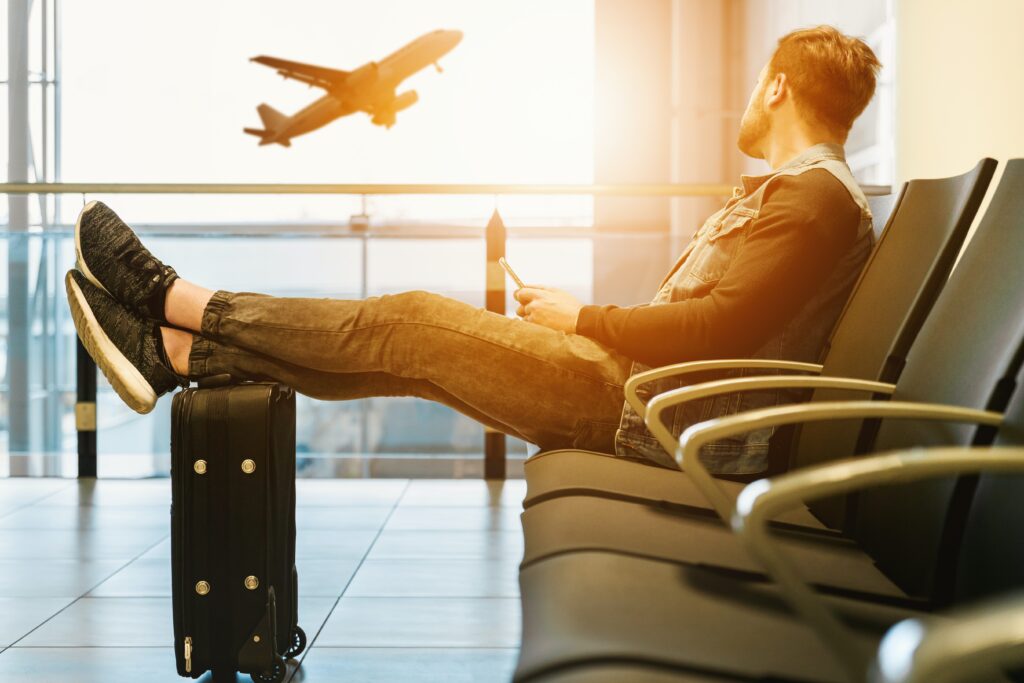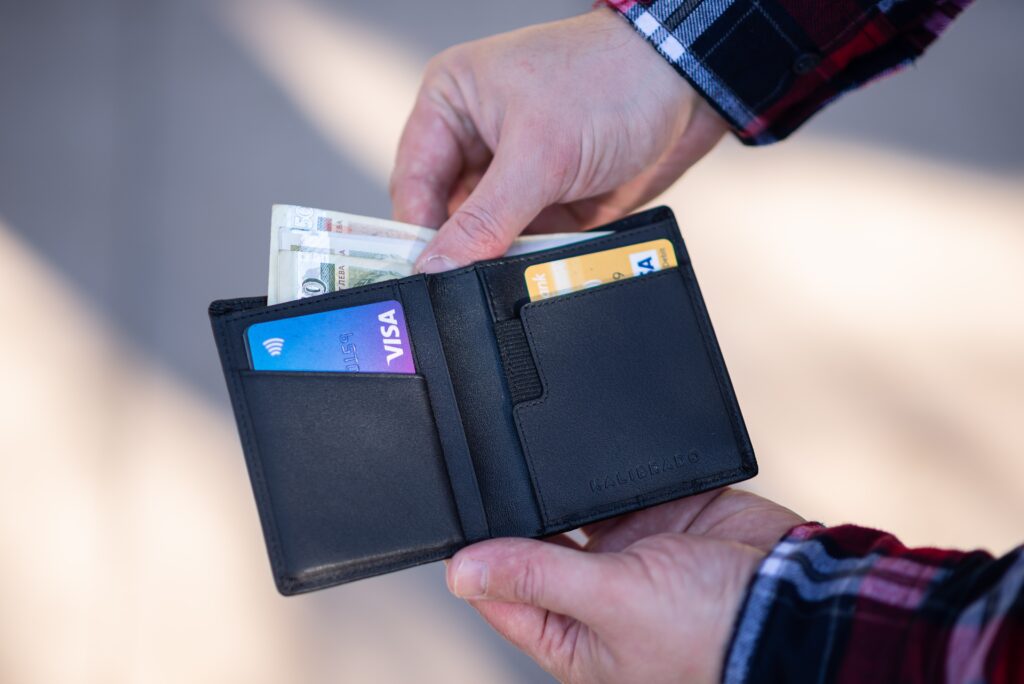When traveling, you have plenty of options for exchanging money and paying for goods and services. ATMs, credit cards, and money exchange counters are all more common than ever—but what about traveler’s checks? Are they still a good idea? If so, when?
You might be surprised to learn that traveler’s checks are still popular in certain cases. Read on to learn more about how they work, their pros and cons, and where to get them.
What is a traveler’s check?
Traveler’s checks were first issued in England by the London Exchange Credit Company in 1772. They were developed for use throughout Europe in 90 cities. It wasn’t until American Express created a large-scale system for traveler’s checks in 1891 that they started seeing widespread use internationally.
Today, traveler’s checks are checks issued by financial institutions to help travelers make payments abroad. The checks are exchanged for local currency or given to retailers for payment.
Travelers can purchase checks for fixed amounts in different denominations. The amounts range in value from $20 to $1,000.

The difference between traveler’s checks, cashier’s checks, and money orders
Traveler’s checks, cashier’s checks, and money orders are three payment options travelers can use when traveling abroad. Each payment type is easy to use, but it may not be obvious how they differ and when it makes sense to use one over the other.
A cashier’s check is primarily used in your home country and made out to specific people or companies. Banks and credit unions can issue cashier’s checks if you have an account with them.
Traveler’s checks are ideal for people traveling outside their home country. They don’t need to be made out to specific individuals or companies. Ask your bank or credit union for a traveler’s check.
A money order is similar to a cashier’s check. It’s given to a payee to allow them to receive cash on demand. You can get money orders at the post office, grocery stores, and other similar businesses. Because you don’t need access to a bank account, money orders are the most helpful for people without banking access.
How traveler’s checks work
A traveler’s check works like cash. You get a set of checks from a financial institution in your chosen amount, then take the checks to shops or banks in the country you’re traveling in and exchange them for cash, goods, or services.
When should I use traveler’s checks?
Traveler’s checks are a great option if you’re in situations where you can’t use other payment methods. Although credit and debit cards offer convenience, not every traveler has them.
Another common situation is traveling to an area without ATMs. ATMs may be hard to find in some cities, and you’ll need a method of payment that locals accept.
Traveler’s checks are also a great way to access local currency. A traveler’s check will lock in the exchange rate and allow you to get a fixed amount of local currency when you’re in other countries.
Where to get traveler’s checks
Financial institutions, like banks and credit unions, are the most common places to get traveler’s checks from. American Express, Visa, and the American Automobile Association also offer traveler’s checks.
Keep in mind that traveler’s checks aren’t free. You’ll pay a fee between 1% and 4% in addition to the amount you want the checks in.

Where to cash traveler’s checks
The first places to look are locations that cater to travelers. Hotel or resort lobbies might offer traveler’s check services, and if they don’t, they may be able to point you in the direction of a business that can. Many banks also have locations worldwide that offer services for people using traveler’s checks.
It’s a good idea to research the area you’re staying in and the surrounding area to find businesses that accept checks.
What to do if your traveler’s checks get stolen
One of the wonderful things about traveler’s checks is that the issuer will replace lost or stolen checks.
If you lose your check or it gets stolen, the first step is to contact the provider you purchased the checks from. The provider will ask a few questions, such as the serial number of the checks, how the checks went missing, and other relevant information.
After you provide the information required, replacement checks will be issued, and your money will be refunded if someone else uses the checks.
Advantages of traveler’s checks
Although traveler’s checks are used less frequently these days, they do have a unique set of benefits that make them worthwhile.
- Traveler’s checks are easy to replace
- Traveler’s checks don’t expire
- Because the checks don’t have a link to your accounts, your identity stays safe
- You can exchange traveler’s checks for local currency
Disadvantages of traveler’s checks
Traveler’s checks can offer safety and ease of use to users, but there are a few downsides of using them.
- You have to pay an institution to issue a traveler’s check
- A limited number of institutions issue and accept traveler’s checks
- You must keep track of the serial numbers
Modern alternatives to traveler’s checks
Below are a few popular alternatives to traveler’s checks that allow you to spend money while you’re away from home.

Credit cards
Credit cards are a popular way to spend money abroad. Instead of carrying cash and checks, you only need a piece of plastic to make purchases.
One of the great things about credit cards is security. Most credit cards have fraud protection that safeguards your money if your card gets stolen or lost.
Credit card companies also offer spending rewards. Reward cards give you points whenever you use them for purchases. Once you get enough points, you can redeem them for rewards or cash back.
One thing to be aware of with credit cards is foreign transaction fees. Some companies charge a percentage of your purchase when out of the country.
You’ll also need to let your credit card company know you plan to use your card out of the country. If you don’t, you risk having your card locked.
Debit cards
Debit cards offer the same conveniences as credit cards. Instead of carrying several checks, you only need a small card.
A debit card is also ideal if you would rather not borrow money. You won’t need to worry about extra bills and interest payments since you’re withdrawing cash from your checking account.
Another way to use a debit card is to get local currency. You can use your debit card at a local ATM and withdraw the local currency. Depending on your issuer, you may have fees with a cash withdrawal.
Like credit cards, you may also see foreign transaction fees if you use them when out of the country. These fees will depend on the bank you use.
An additional problem with debit cards is you’re out of luck if your card gets stolen. Because it’s your money and not borrowed on a credit card, you’ll need to wait for a bank to refund your cash.
Prepaid cards
A prepaid card is easier to carry than cash. Unlike credit and debit cards, prepaid cards have a specific amount loaded on the card. You pay to load the card with cash before you go on your trip.
Many consider this a safer option, since you only lose cash on a prepaid card if it’s lost or stolen. Nobody will have access to your bank or credit accounts.
One of the biggest issues with prepaid cards is their cost. You’ll pay a fee every time you load money on your card. These fees usually happen when you reload your card from a retail location.
Mobile wallet
A mobile wallet is a convenient way to make overseas purchases if you carry your phone everywhere, and you’re in a country where mobile payments are common.
Mobile wallets act like real wallets, allowing you to store digital versions of credit cards and debit cards without hauling the physical card with you.
The biggest plus of mobile wallets is convenience. You can easily pick which payment method you wish to use and pay by holding your phone to the payment system.
Because a mobile wallet is on your phone, you also benefit from your phone’s security. It’s not easy for thieves to use your mobile wallet if they can’t access your phone.
That said, mobile wallets are more common in urban areas and in certain countries. Don’t rely on one as your only form of payment when you travel.
